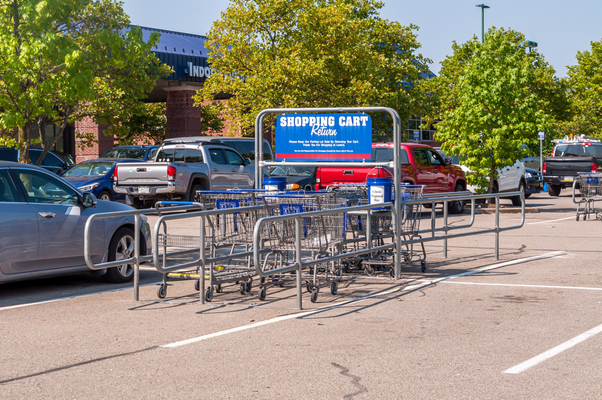Self-governance is doing the right thing even though there is no law that says it must be done.
The best example I can think of is the simple act of returning the shopping cart to the storage rack after unloading your purchases. There is no law that says it must be done. There are no police who will arrest you if you leave it in the road. Chances are that no one you know will see you be a shirker, so they probably won’t be talking about you on social media. It’s totally your choice to return or not return the cart. Your decision to return it is self-governance.
The service of returning the cart to the rack is a simple act of kindness that makes life easier for everyone and makes society work. It’s something we learn from watching our parents or grandparents return their carts. They do this even though they are tired, or their knees hurt or it’s raining. It’s a kindness for the next person and a norm, which is a fancy word I learned in school that means it’s an acceptable practice in our society.
But let’s think on a personal level. Who does it help? Who does it hurt?
Imagine driving into a parking lot and finding that perfect space near the door but it’s got a shopping cart right in the middle of the space. How does it make you feel? Angry? Frustrated? Do you park in the middle of the road with people waiting behind you, get out, move it, return it to the rack and make it right, then park your car? Or do you move it just enough to get your own car in the spot but leave it where the car beside you might hit it or it might roll down the hill and dent someone’s car? Or do you just move on and leave the problem for the next person to fix?
I probably would just move it enough to park, then take it with me into the store, but the annoyed feelings and bad mood just might follow me for the rest of the day. That’s how the shopping cart becomes an analogy for self-governance and its effect on society.
I often think about the young man who has the job of rounding up the carts and driving them in a “hard to manage” train, back into the building. He’s there providing a service for me in all kinds of weather; heat, cold, rain, ice, and traffic.
My grandson does this as part of his after-school job. I remember the day they sent him out to get the carts during a tornado warning so the carts wouldn’t get blown into customers’ cars. It was my dearly beloved grandson risking his life to get those shopping carts that day, but the young person who does this job at your store could be someone you love, or more likely someone you don’t even know. Either way, he deserves our consideration and respect.
Now, let’s take the shopping cart analogy to the societal level. Imagine a parking lot full of shopping carts that are never returned, parked willy-nilly anywhere they might land or left where cars must maneuver around them. At that point, they begin to damage people’s property or become an injury hazard for the customers. It becomes a society out of control that must be “governed.” There would be laws put in place and there would be penalties for not returning your shopping cart. You may no longer be allowed to park in that parking lot, or you might be forced to pay an extra tax on every can of green beans you buy because they had to hire parking lot police.
It seems extreme but it is why the government was formed and why laws exist, to control us when we won’t control ourselves. If everyone governed themselves then we wouldn’t need laws and our freedom to choose would remain in effect.
If We the People would think of what was best for ourselves and others, we wouldn’t have politicians and bureaucrats in Washington, D.C. making laws and regulations that would restrict our right to buy the kind of car we want to drive or our decision to buy a gas stove or an electric stove. We could read the pros and cons and make those kinds of personal decisions for ourselves, based on what is right for our families and our society.
That’s one way I use self-governance. It’s as simple and important as returning my shopping cart to the appropriate rack. Sign the petition below to support Convention of States.
This article was submitted by Kathy King.


